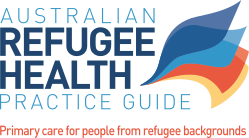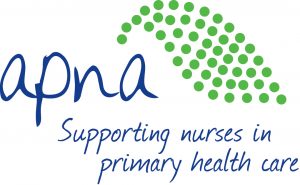Older people
Table of contents
Key Points
- Older people from refugee backgrounds (that is, aged 65 and above) have higher settlement and recovery needs compared to other refugees, as well as being more likely to have chronic disease.
- Being elderly and a refugee can increase the effects of stress, anxiety, depression, isolation and vulnerability
- Acquired English language skills may be lost, with reversion to their first language
- Minimise re-traumatisation and triggering of painful suppressed memories
- Symptoms of depression, anxiety and post-traumatic stress can be confused with that of dementia
- Cultural concerns may impact on acceptance of aged care or interpreter services
- Consider financial barriers to seeing private specialists and allied health workers.
Overview
In Australia the majority of older people from refugee backgrounds arrived decades ago, escaping from Europe after WWII, and from conflicts in South-East Asia and Central and South America. However, there is an increasing number of older people arriving as refugees from the more recent conflicts in the Middle East. They have experienced recent war trauma, and may be reuniting with family in Australia after many years of separation. These older people tend to have a higher degree of chronic illness and sometimes more complex psychosocial adjustment, when compared to younger refugees. As well as the usual conditions of old age, older people from refugee backgrounds may face health problems from previous deprivation, physical injuries and inadequate access to health care. Symptoms of depression, anxiety and post-traumatic stress can be confused with that of dementia and thus mental health needs may be overlooked. Disruptions to memory, such as dementia, or during hospitalisation and institutionalised aged care, can trigger painful suppressed memories, forcing people to re-live events such as torture or time spent in internment. This is distressing and can manifest in increased anxiety, depression and challenging behaviours.
With the onset and progression of dementia, acquired language skills in English may be lost, with reversion to their first language. This increases communication problems with medical and aged care personnel, and possibly even their family. It highlights the importance of using professional interpreters when assessing older refugees and providing medical care.
Recently arrived older refugees may experience higher levels of social isolation due to lack of family in Australia, limited local community of same age and background, and difficulty in developing trust due to their past refugee experiences. The older refugee may make the assumption that they are at the end of life and not seek medical advice for certain issues, or assistance with mobility, eyesight, dentures or hearing aids. There may be a reluctance to accept assistance from care services due to cultural appropriateness concerns. This is primarily because caring for the elderly is considered a traditional duty of family, and accepting outside help can be seen as shameful and reflecting an inability of family to fulfil this role.
Approach to Care
- A thorough social and medical history will be required, as well as the same comprehensive assessment (including vision, hearing and oral health) offered to all newly arriving people of refugee background.
- Chronic disease assessment and management will be particularly relevant.
- Catch-up immunisations may include the need for single dose diphtheria/tetanus/pertussis, pneumococcal and shingles vaccines. The need for annual influenza vaccine should be explained.
- Cancer screening may never have been undertaken – cervical and breast screening in women, and bowel screening in both genders. Sensitive explanation of the benefits of these tests, which may be viewed as unpleasant and foreign, will be required.
- Comprehensive mental health assessment is required to separate any symptoms of dementia from those of depression, anxiety and post-traumatic stress.
- It is important to minimise re-traumatisation; listening patiently to a person’s life story and experiences, use gentle and supportive ‘third person’ enquiry, ‘generalising and normalising’ their difficult experiences and current issues, contributes to healing.
- The cultural context in which services are provided must also be considered; use of interpreters is key, and where possible the use of ethno-specific aged care services.
- Cost of specialised assessments, allied health appointments and other services should be minimised given the financial constraints faced by recently arrived refugees in particular. Preference should be given to using the public health system whenever possible, and/or bulk-billing specialists, and chronic disease care plans.
Links
Enhancing the Lives of Older Refugees
UNHCR – Older People
References
Atwell R et al (2007) Ageing out of place: Health and well-being needs and access to home and aged care services for recently arrived older refugees in Melbourne, Australia’. Int Jn of Migration, Health & Social Care 3(1): 4-14.
Joffe H, Joffe C & Brodaty H (1996) ‘Aging Jewish Holocaust survivors’, MJA 165: 517-20.
Paratz E, & Katz, B (2011) “Ageing Holocaust Survivors in Australia” , MJA 194: 194-97.
Steel Z, Silove D, Phan T, Bauman A (2002) ‘Long-term effect of psychological trauma on the mental health of Vietnamese refugees resettled in Australia’ Lancet 360 (9339): 1056-62.




